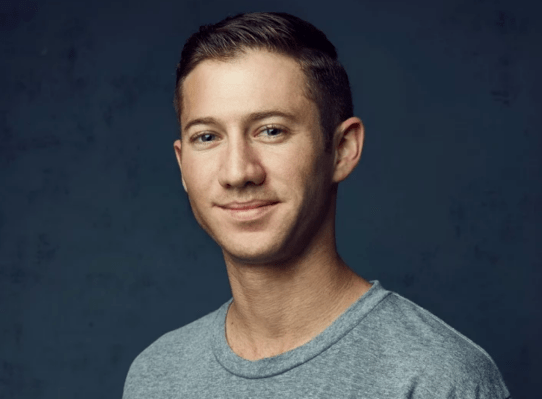Most 24-year-olds are still figuring out how their careers will take shape. Jeremy Fiance, a recent UC Berkeley graduate, knows he wants to be a venture capitalist. He isn’t waiting to rise through the ranks of someone else’s firm, either.
Instead, Fiance is today taking the wraps off his new firm, The House Fund, which just closed its debut vehicle with $6 million in capital commitments from an array of individual investors, many of them venture capitalists.
It’s easy to understand their interest in Fiance. He’s sharp. (He graduated with an interdisciplinary studies degree, having studied business, engineering, and design). He’s media savvy. (Within hours of our phone conversation last week, Fiance sent over a comprehensive package of media assets.)
Fiance also has a highly compelling pitch. The big idea: UC Berkeley has been overlooked for too long by angel investors and VCs alike, and Fiance is positioned as well as anyone to unearth its hidden gems.
It’s hard to believe when you think about the numbers. UC Berkeley has a half a million alums and a current student body of 37,000, including undergraduate and graduate students. But students and alums alike say that despite high-profile alums like Eric Schmidt, Steve Wozniak, and Chris Anderson — not to mention the many interesting startups created at the school (Caviar, acquired by Square, is but one) — UC Berkeley still receives a small fraction of the attention that angel investors and venture capitalists pay Stanford.
As venture capitalist Pejman Nozad told us last summer, a big gating factor is simply location. Because UC Berkeley is 45 minutes from Palo Alto, where plenty of VCs still live and work, it “doesn’t get nearly as much attention despite that its computer science department ranks right up there with Stanford and Carnegie Mellon and M.I.T.”
Last year, Nozad’s firm, Pejman Mar, itself a stone’s throw away from Stanford, created a $250,000 startup competition at UC Berkeley to help it identify promising teams until it has more bandwidth to throw at the school.
Other firms have also crept up here and there. Alsop Louie Partners has occasionally hired students to act as on-campus scouts, for example. Andreessen Horowitz also has a sizable technical talent and people practices unit that sometimes scours university campuses for interesting people, including at UC Berkeley. (One of its finds: Databricks, a machine learning and analytics platform that was founded out of the UC Berkeley AMPLab. The three-year-old company has gone on to raise $47 million.)
Still, no outfit has focused exclusively on Berkeley the way that Stanford’s StartX fund is dedicated to accelerating the development of entrepreneurs with Stanford ties.
And that’s the vacuum that Fiance plans to fill.
He seems to have the network for it. During his freshman year in 2010, he brought to campus Kairos Society, a now nine-year-old organization that encourages budding entrepreneurs to tackle global-scale social challenges.
Fiance and friends also created a still-up-and-running student accelerator called Free Ventures while in school. It didn’t have a lot of money to work with at the outset. In fact, it had just $2,500 in winnings from a UC Berkeley-sponsored competition called Big Ideas. But it managed to spread that amount across six different startups.
Some of those bets are playing out nicely, too. Lily Robotics, a now 2.5-year-old camera drone company that had then just started in a UC Berkeley robotics lab, has since raised $15 million in funding, including from Spark Capital. Fiance says that the other five have collectively gone on to raise another $23 million in funding.
Fiance also reached out to Dorm Room, a student-run venture-fund backed by First Round Capital, which gives each campus where it’s in operation $500,000 to invest. He was brought aboard for more than one-and-a-half years to help the outfit identify promising startups. Then he connected with the seed-stage fund CrunchFund (co-founded by TechCrunch founder Michael Arrington), with which he worked during the last seven months of his school career. Fiance says the outfit invested in seven startups that he brought to its attention.
Unsurprisingly, it didn’t take other VCs long to hear about Fiance. Asked how many have tried to hire him into their firms, he reluctantly admits the number is ten. We believe it, given the firms that endorsed him for this article, including Redpoint Ventures and Greylock Partners.
Fiance politely declined, convincing investors instead to invest in The House Fund, which has already made six investments and is targeting companies that were started by Berkeley students, alums or professors who need $250,000 or less to prove out their models. (The House Fund provides $50,000 of the funding and loops in other angel investors and venture firms to fill out each syndicate.)
Asked how he identifies promising startups, Fiance says he’s “always actively searching for great talent – not just entrepreneurs who’ve shown the ability to execute on a project in the past, but who have a unique area of expertise.”
Asked if regrets passing on any teams, he says he doesn’t, offering that he “would have liked to have made more investments.”
Even now, there’s much more going on at Berkeley than outsiders recognize, he suggests, hinting that his $6 million fund is just the start of things. “Having a dedicated fund will definitely have its benefits for Berkeley’s ecosystem,” he says.
The venture firms working with him are counting on it.
